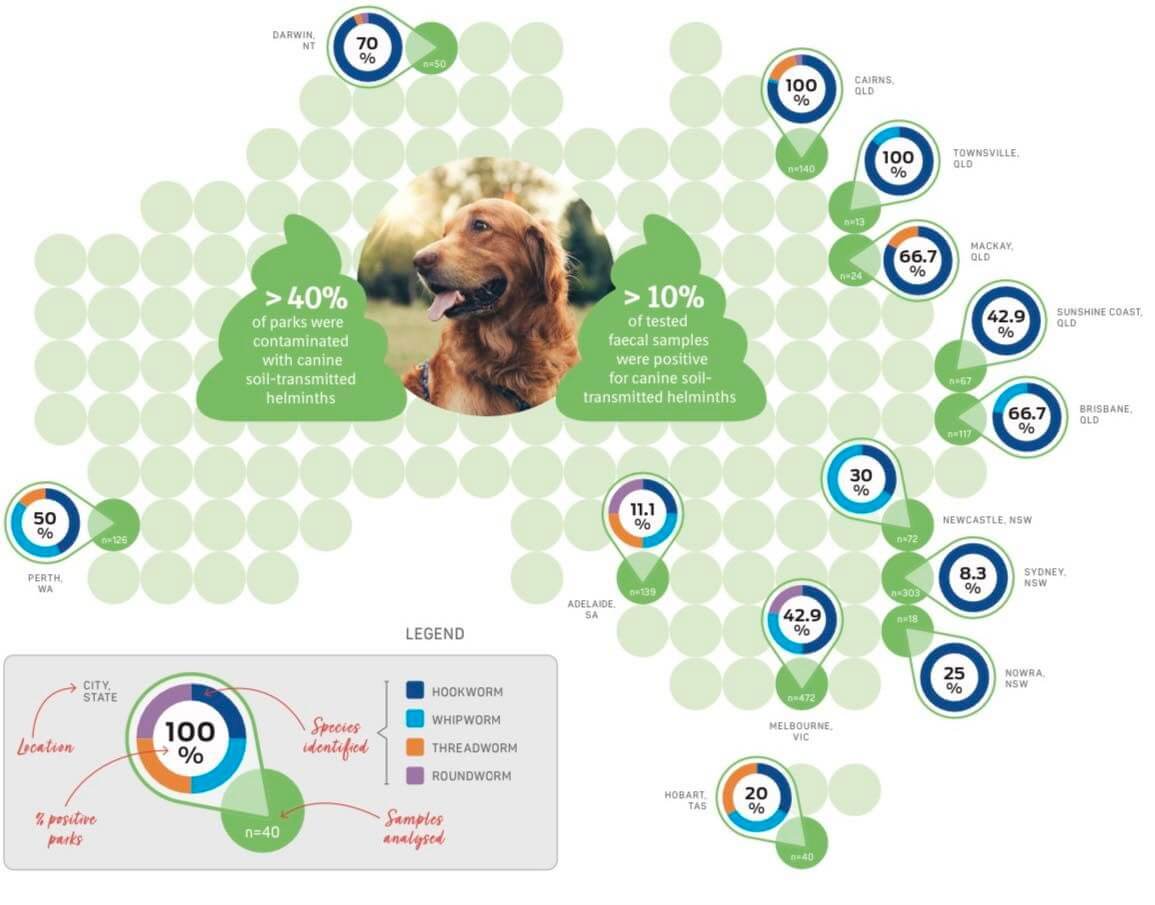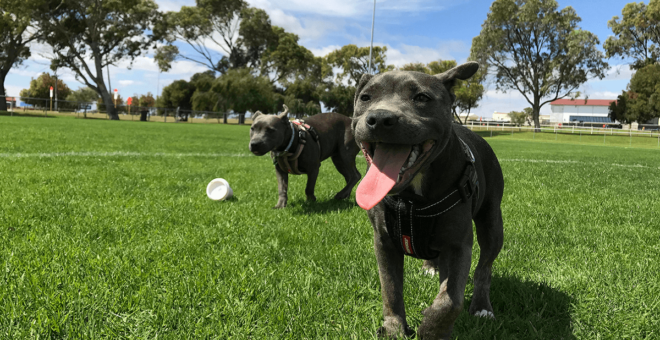Intestinal worms can cause a range of health issues in dogs if left untreated. They can even cause health risks to people if transmitted from their pets.
In this blog we’ll discuss the different types of intestinal worms in dogs, how dogs get worms, common symptoms and treatment options.
What are intestinal worms?
Intestinal worms are parasites that live in your dog’s digestive tract. There are a number of different worms that can affect dogs. The most common types include:
- Roundworms
- Hookworms
- Threadworms
- Tapeworms
- Whipworms
When a dog infected with intestinal parasites defecates, it sheds the eggs of these worms in its faeces. However, it is unlikely that you will be able to see these eggs yourself, as they are typically too small to be seen by the naked eye.
How do you know if your dog has worms?
Different worms can cause different symptoms in dogs, so your pooch may display one or many of the symptoms listed below:
- Weight loss
- Enlarged belly
- Vomiting
- Diarrhoea
- Lethargy
- Coughing
- Itchy bottom
If your dog is displaying any of the above symptoms, it’s important that you get them checked out by your vet. They will be able to run a series of tests, including laboratory testing of your dog’s faeces to detect any signs of worm eggs, or other health issues.
How do dogs get worms?
The main way dogs end up with worms is by coming into contact with the faeces of infected dogs, such as when they sniff or lick the ground.
Dog parks are one of the most common places where your pup could be infected with intestinal worms. A recent study by Boehringer Ingelheim Animal Health and The University of Melbourne showed that 43% of all dog parks in Melbourne were found to be contaminated with canine intestinal worms.

People can also become infected by certain types of worms, including roundworms and hookworms, if they handle contaminated soil or faeces and don’t wash their hands properly afterwards.
Treatment options
If your dog has been diagnosed with intestinal worms, your vet will advise the best treatment based on the type of worms they have. Dogs are typically treated with deworming medications, firstly to kill the adult parasites, and then repeated a few weeks later to catch newly hatched worms.
Protecting your dog against worms
Prevention is the best option when it comes to worms, with a wide range of very effective dog worming tablets and dewormers readily available. Combined flea and worm treatments are a popular option, along with treatments that provide protection against both intestinal worms and heartworm. If you are unsure which product is best for your dog, your vet can assist with recommending the most appropriate treatment option.
Pet owners should also ensure good hand hygiene practices after disposing of dog faeces or visiting a dog park to minimise the risk of transmission of worms.
Need expert advice?
If you have any questions about the best way to prevent worms or any other aspect of your dog’s health, our friendly team are available seven days a week. You can call our Hampton East vet clinic on 03 9555 4808 or book an appointment online.


